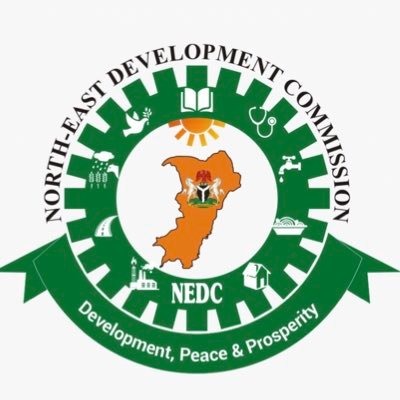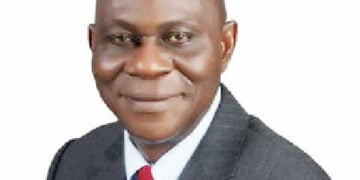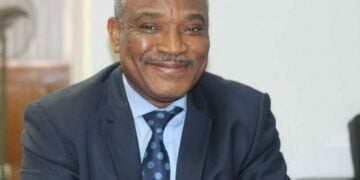Until 14th of September 2011, Yobe State and Damaturu, the state capital in particular, was not only a peaceful and emerging town but a place where people from across the 17 local government areas of the state were calmly doing their legitimate businesses freely 24/7 without any suspicion from anyone including the security operatives.
The narrative changed when for the first time, people were running helter-skelter, not because there was a windstorm known for desert towns but because of gunshots and massive explosions, which were later discovered to be a heinous act perpetrated by a group known as Boko Haram.
Anyone living in Yobe State will easily recalled that since when their was crisis between the security agencies and the group in Maiduguri the Borno State capital including the military offensive in 2009 which led to the slept with all of their two eyes closed. Similarly, Damaturu just like any other capture of their leader Muhammad Yusuf, the situation was relatively calm in Yobe with no major incident such as killing or destruction of public and private properties until on the 14th of September 2014, when the group launched an attack on Damaturu killing many and destroying many structures.
It was a day that will continue to linger in the minds of the people of Damaturu, due to the level of killings and destruction especially on security agencies structures which were mostly set ablaze or brought down by explosives. The dreadful habit later escalated to other parts of the state especially Gujba, Gulani, Damaturu, Tarmuwa, Bursari, Yunusari and Geidam local government areas.
Boko Haram (Western education is prohibited), has within years of operations, inflicted damages on people’s means of livelihood forcing many in the three states of Yobe, Borno and Adamawa to leave their ancestral homes to Internally Displays Persons (IDP) camps while many public structures mostly schools suffered high degree of destruction which will take years for government to rebuild.
Though, the Nigerian military have succeeded in liberating towns that were hitherto under the control of Boko Haram in Yobe with many people resettled back to their ancestral houses, the damages and trauma caused by the decade age long insurgency in the state and the north east is something that people of the area will not only continue to seek for help but a commission that will facilitate post insurgency recovery efforts.
Statistics revealed that the stock of houses in the North-East States before the insurgency was about 4 million, out of which over 500,000 structures (Houses and Commercial Premises) were destroyed or irreparably damaged. Even before the insurgency, there was a housing deficit in all the States of the Region. Therefore, the insurgency only further aggravated the situation.
The North East Development Commission (NEDC) was the organisation established by the administration of President Muhammadu Buhari on October 25th, 2017 with a mandate to assess, coordinate, harmonise and report on all intervention programmes, and initiatives by the Federal Government or any of its Ministries, Departments and Agencies (MDAs), states and other development partners and for the implementation of all programmes and initiatives for the North East states of Adamawa, Bauchi, Borno, Gombe, Taraba and Yobe.
Yobe state being the second most affected and worst hit after Borno, had received various interventions from the commission in its quest to reintegrate, reconstruct, rehabilitate and rebuild the state and the region in general. Though, when the NEDC was establish, must IDPs camp in Yobe were closed down with people either resettled or residing with their relatives, the agency has upon establishment to date succeeded in supporting many with food and non food items, water supply, building materials, medical support, teachers training as well as housing and road constructions among others.
The worst hit local governments of Gujba, Gulani, Damaturu, Geidam and Yunusari were assisted with food and non-food items such as rice, millet, maize, cooking, spaghetti, mats, clothes among others.
At the heave of the Coronavirus pandemic, the NEDC had in April 2020, donated two brand new ambulances, 50 medical beds and food items to Yobe State. The commission has earlier donated medical equipment and consumables including two sets of ventilators, 1000 surgical masks, 32 infrared thermometers, 400 hand gloves, 1800 personnel protection equipment and hand sanitizers among others.
Also, in September, 2021, the MD/CEO NEDC, Mohammed G. Alkali visited Damaturu the Yobe State capital for a ground breaking ceremony of the construction of 500 NEDC Model Mass Housing, Mega Schools, the Gujba-Ngalda road project and graduation of third batch of ICT trainees.
Alkali while speaking during the ceremony said, “Your Excellences, distinguished guests, construction will commence very soon after today’s foundation laying ceremony.
“The mass houses we are about to commence construction are of the Cluster block style which consists of blocks of four units of 2-bedroomed bungalows with Veranda and Courtyard. Each block sits on four hundred square meters, with a fence separating each twin-facing house, covered kitchens and toilets/bathrooms, and ample space for home living activities. The following Socio-economic facilities would also be provided: Street lights, Reticulated Water Supply System, commercial spaces amongst others.
On NEDC’s Model Mega Schools project, the MD stated that the Commission is also charged with the responsibility of Construction, Reconstruction and Rehabilitation of Education Sector Infrastructure to redress the high deficit in classroom blocks in both Primary and Secondary Schools throughout the North-East Region. This deficit has meant that the Region is the part of the country with the lowest literacy rate and highest poverty index in the country.
“Low literacy and high poverty are recognised by experts to be among the root causes of the violent insurgency that bedeviled the Region for twelve years and the situation was further exacerbated by the large-scale destruction of schools and losses in the lives of youths, teachers, students etc.
“The destruction of schools, especially where they have not been rehabilitated throughout the decade of insurgency, resulted in the truncation of the education of primary and secondary school students, and even where schools remained standing, widespread poverty coupled with insecurity rendered an estimated 600,000 young people unable to go beyond the Primary or secondary school levels. As such, millions of out of school children in the region remain uneducated, justifying the need for massive intervention in the development of school infrastructure.
“Consequently, the Commission resolved to construct three (3) composite mega schools or upgrading of existing ones in each states of the region, thus making eighteen, one in each of the senatorial district. We are also going to compliment the physical structure with soft support like teachers’ training, curriculum upgrade, e.t.c.
“In the same manner as with the mass housing, sites have been sought for, and have been provided for the schools as follows, Buni Yadi in Gujba LGA, Potiskum in Potiskum LGA and Gashua in Bade LGA. God willing, we are going to have the foundation laying ceremony for the schools in Gashua tomorrow.”
NEDC has also provided 79 solar powered and motorised boreholes to towns and villages of the 17 local government areas of the state. Areas such as Dusuwa village in Damaturu local government area and Buni-Gari of Gujba local government areas all ravaged by the activities of Boko Haram insurgents benefited from such borehole projects from the commission.
In order to reduce mortality resulting from the corona virus pandemic, in 2020, the commission embarked on the construction of three molecular laboratories and were commissioned by the Yobe State Governor Mai Mala Buni in September 2021 at Yobe State University Teaching Hospital and Specialists Hospital all in Damaturu and another one in Specialists Hospital in Potiskum. The molecular laboratories were equipped with COVID-19 testing machines and are also capable of conducting diagnosis of various diseases, which prior to establishments were not obtainable in Yobe State.





